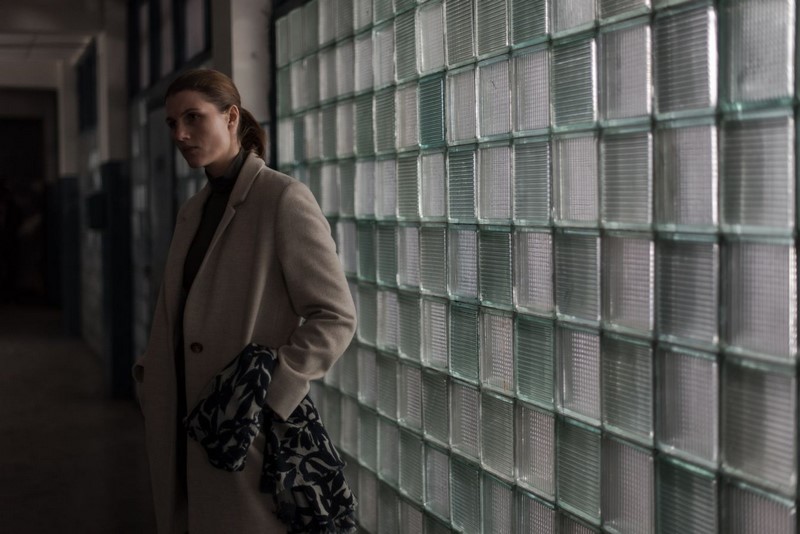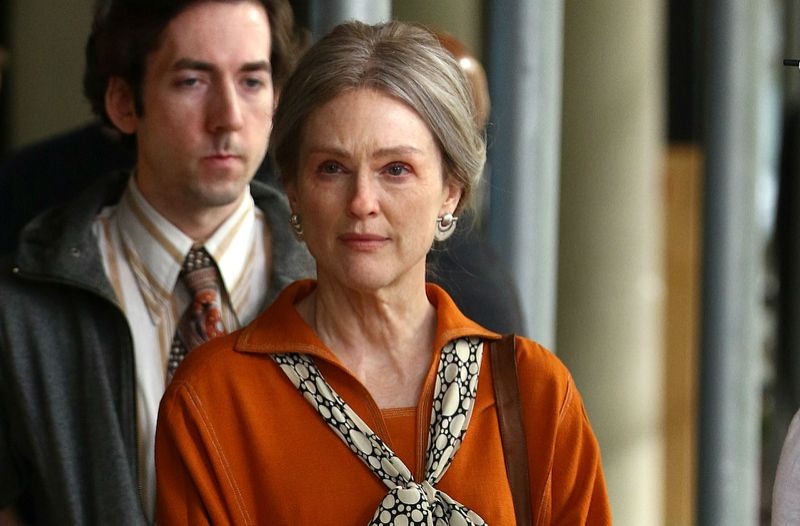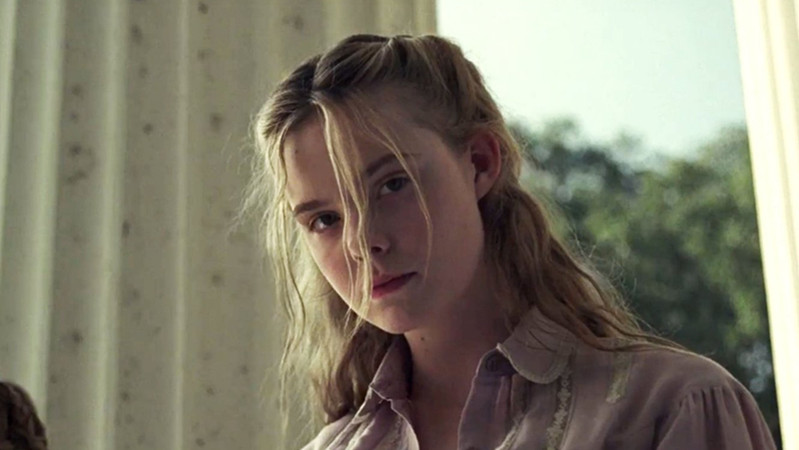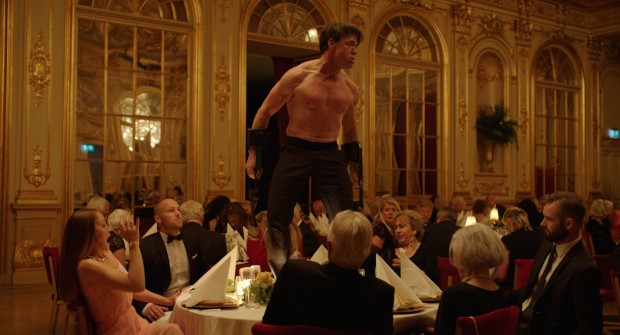6. Loveless (dir. Andrey Zvyagintsev)

The freezing temperature we feel during “Loveless” doesn’t uniquely come from the snow falling from the sky and covering the streets but from the mutual hate the two main characters have for each other.
Zhenya (Mariana Spivak) and Boris (Alexey) are getting a divorce. They can’t stand being in the same room together which creates a poisonous environment for their young son Aliosha. They don’t seem to really care about him. Zhenya is focused on her relationship with her new boyfriend and spends most of her time in her smartphone while Boris doesn’t live with him anymore and his main concern is work.
It’s revealed that Aliosha wasn’t planned and Zhenya thought of getting rid of him but she was too afraid to do it. They are so unconcerned about him that, when he decides to escape, neither of them notices until a day later. The divorced couple, struck by this tragedy, needs to work together to find the missing child.
As the search for the child, first dismissed as a simple act of rebellion that eventually that concludes quickly in his comeback, we get to know more about these full fledged characters personalities and backgrounds.
“Loveless” was directed by Andrey Zvyagintsev, whose “Leviathan” earned him an Oscar Nomination for Best Foreign Language Film. Like that film, this new effort also reveals itself a critique of modern Russian society as we hear in the radio people talking about the “apocalyptic sentiments” that has taking over the population.
This is not an easy film to watch nor a particularly “pleasant” one but it’s haunting, for sure.
5. Okja (dir. Bong Joon-ho)

Entertainment outlets all around the world were quick to report the boos ‘Okja’ received during its first screening to the public. What the misleading headlines failed to mention is that the public didn’t boo the movie but the Netflix Logo that precede it. “Okja” had a heavy weight on its shoulders, being the first movie in the history of the festival that would never eventually be released in theatres.
The film ended up being pretty much what you would expect from Netflix. It’s a light entry with serious blockbuster feel in a competition lineup dominated by “auteur films”. One of the main characters is a CG creation, there’s car chases and a big climatic scene just like Hollywood has accustomed us.
The story is a simple one. A food company in the US called The Mirando Corporation decided to create a new pig species that’s as big as a hippo to produce more meat with less cost. They send baby pigs all around the world to different farmers and the one that will end up raising the healthiest will win an award. 10 years later, the winner is Okja, the pig and best friend of little Mija (Seo-hyeon Ahn). When the Mirando Corporation takes the animal to kill it in the US, Mija will do everything to stop them.
The messages and themes of the film have been explored to death multiple times before (evil corporatists, defenseless misunderstood creature and its relationship with a caring human child). However, the humour is mostly sharp (with the painful exception of some poop and fart jokes) and the cast is great.
13 year old Ahn Seo-hyun has talent to lead the film, Jake Gyllenhaal is laugh out loud funny as a wacky zoologist and Tilda Swinton plays not one but two hilarious characters. Need I say more?
4. Wonderstruck (dir. Todd Haynes)

Hit (I’m not there) or miss (Carol) but still beloved director Todd Hayne’s new effort, adapted from a Bryan Selznick graphic novel, was one of the most anticipated entries in the competition this year and it did not disappoint.
In the manner of “Hugo” (from the same author), “Wonderstruck” is a family friendly children’s adventure. Ben (Oakes Fegley), who never knew his father and recently lost his mother (Michelle Williams), lives in Gunflint Lake, Michigan when he’s literally struck by lighting causing him to go depth.
Despite his new disability, he decides to run away to New York to find his missing father. In parallel, we see the story of Rose (Millicent Simmonds), a girl who was born depth but refuses to learn sign language who also escapes her house to meet her favorite movie star (Julianne Moore).
“Wonderstruck” is a beautiful looking, original and ambitious piece that’s sweet throughout, but only hits a real jackpot in its brilliant last 30 minutes. It is a slow burn of a movie indeed.
The first 2 acts of ‘Wonderstruck’ are kind of stale, but everything is so enjoyable because it’s so pleasant to look at. Haynes brought in his recurring collaborators like cinematographer Edward Lachman and costume designer Catherine Powell to create the two distinct looks of New York in the 20s and the 70s and it works wonderfully. There’s a beautiful precision in the world Haynes builds on camera that’s fascinating.
The acting is great across the board. All the child actors are believable, specially Millicent Simmonds who’s a real life depth actress. The supporting cast is really strong with Julianne Moore being a highlight as she plays two completely different characters both physically and psychologically.
3. You Were Never Really Here (dir. Lynne Ramsay)

Lynne Ramsay, who previously directed the haunting Morvern Callar and We Need to Talk about Kevin, has reaffirmed her favorite themes in her new feature “You Were Never Really Here”: violence, characters dealing with traumas and hit by tragedy. Joaquin Phoenix, who won the Best Actor award this year, plays Joe, a war veteran and former member of the FBI, tormented by all that he’s seen who’s hired to search the daughter of a local politician who’s involved in a child sex-trafficking ring.
The film is very short (88 minute) so it’s very economical: every moment, every shot says something about our mysterious main character. Ramsay cuts right into the chase. From the first moments we see Joe (one in particularly in which he tries to strangle himself), we understand something’s wrong.
There are numerous flashbacks sharply edited that let us take a look into his tormented childhood. Joaquin Phoenix seems like the perfect actor to portray this character and he is. He delivers a tour de force performance, one of the best of his career. The score, the best I’ve heard in the festival, helps to set the mood perfectly. Everything feels dreamy or rather nightmarish which is helped by the fact most scenes set at night.
“You Were Never Really Here” is dark, gripping and melancholic piece that serves as a yet another great feature for director Lynne Ramsay.
2. The Beguiled (dir. Sofia Coppola)

Miss Coppola always has the last laugh. After years of being ridiculed for her acting in “The Godfather 3”, she won an Oscar in 2003 for writing one of the best movies ever made, “Lost In Translation”. Since then, most critics have dismissed her as a “one hit wonder” and mostly ignored her brilliant work.
In 2006, she was unfairly booed at Cannes for daring to do something wildly original and different with her take on doomed French queen “Marie Antoinette”. 11 years later, at the same festival, she wins the Best Director award for the handsome, occasionally sexy, darkly funny and impeccably acted, “The Beguiled”, being only the second female director to receive such distinction. Justice takes time but eventually arrives.
The second best movie in competition this year happened to be a remake of the 1971 Don Siegel film of the same name, although Coppola prefers to call it a reinterpretation of the book it’s based on, “A Painted Devil” by Thoman P. Cullinan.
The film is set during the Civil War, in 1863, at a southern all-girl boarding school. Their peaceful lives are interrupted by their encounter with a wounded soldier in the woods. While they take care of him in the school, his presence will change the relationship the women and girls have between them as they are tempted by lust.
No other filmmaker writes women like Sofia Coppola does. Each of her main female character has distinct characteristics that are fascinating to behold. Edwina (Kirsten Dunst) is a still young teacher trapped in a place that doesn’t live up to her potential (like her two previous Coppola roles in “The Virgin Suicides” and “Marie Antoinette”) while teenager Alicia (Elle Fanning, reuniting with Coppola after “Somewhere”) is a rebel full of hormones that stares menacingly the soldier when they met and seductively as times pass by.
As for the matriarch herself, Miss Martha (Nicole Kidman), she’s a badass strong woman that’s “as blunt as she wants to be”. All their personalities are established perfectly in so little time that when the conflict occurs, every action they take makes perfect sense. The arrival of a male figure in a woman’s world blends itself to suspenseful, sexy and even funny scenes (there’s a brilliant dinner scene in which everybody wants to take credit for an apple pie the soldier said he loved).
The location, as it’s the case on all Coppola films, is used perfectly. The film was shot on Louisiana’s Madewood Plantation House (also used in Beyoncé’s “Lemonade”) and DP Phillipe LeSourd manages to capture perfectly its mysterious fog filled forests and beautiful gothic interiors.
While some key classic Coppola elements are missing, most notably a present soundtrack, her fans and mainstream audiences will enjoy The Beguiled, as this has become Coppola’s most accessible movie.
1. The Square (dir. Ruben Östlund)

Believe the hype. This is no “I, Daniel Blake”, this the real deal, a deserving Palme D’Or Winner.
An art curator named Christian is at the center of “The Square”. He dresses stylishly, has a big modern apartment and drives his expensive car everyday to the museum where he works. He’s trying to launch a marketing campaign for a new exhibition called “The Square”, a place where humanitarian values reign supreme, that’s to say that everybody has equal rights and help each other.
But everything goes wrong in Christian’s life as the marketing campaign fails, his cellphone is stolen and in an attempt to get it back he makes things worse and has to deal with his relationship with an American reporter.
This is an insanely clever comedy that has a lot to say about art and how far it can go to make a point. There’s a brilliant scene in which a performance artist impersonates an ape that has become one of the best scenes ever put on flm.
“The Square” talks about charity and privilege as the screen is constantly assaulted by images of homeless people begging for money to survive. Of course, Christian ignores most of them (except in a great scene in which it ends up being him that asks a homeless man for help) and head to the art exposition about helping each other.
Christian’s character, at first glance just a goofy guy, becomes more and more interesting as he realizes that the person he presents to the world might not be who he really is and his feeling of privilege and superiority as a rich man literally starts hurting people.
There hasn’t been another film as irresistible at the competition this year as “The Square”.
Author Bio: Born and raised in Peru, Sebastian Quevedo is an aspiring filmmaker and passionate cinephile who tries to find inspiration watching movies of every genre, every decade and from all around the world.